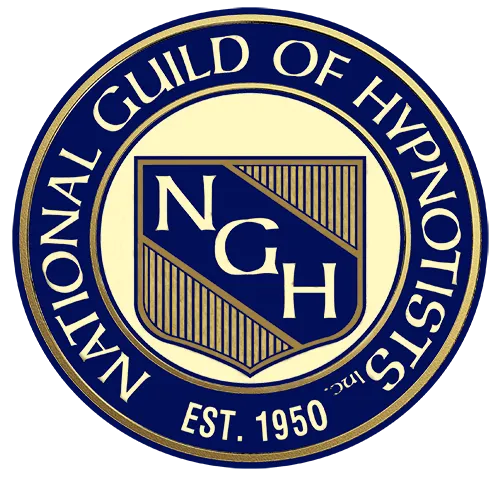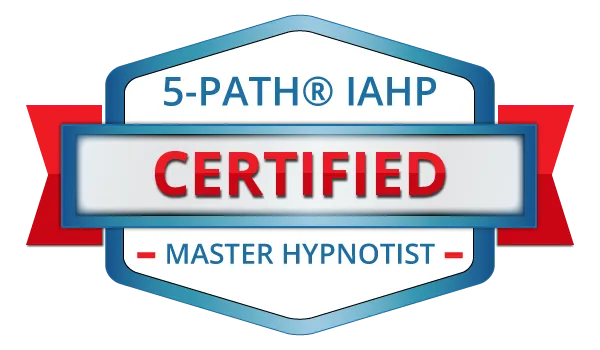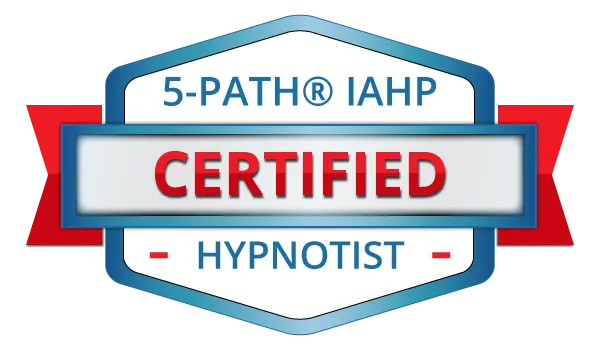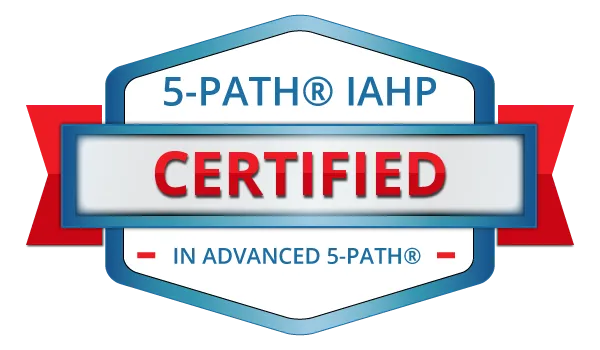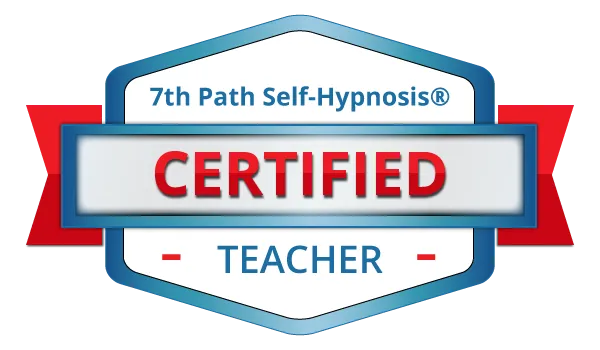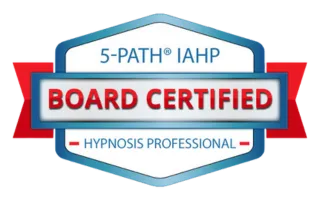What Kinds of Stuff Can
Hypnotic Life Coaching Work For?

Hypnotic Life Coaching helps when talking it out isn’t enough.
This is for the woman who’s already read the books, tried the apps, done the therapy, but still feels stuck. Using advanced subconscious techniques, combined with coaching, this method helps shift the emotional and mental patterns you can't think your way out of.
I CAN Help Even When Everything Else Has Failed
✦ Chronic stress that doesn’t respond to rest
✦ Burnout recovery and emotional depletion
✦ Tension, racing thoughts, difficulty relaxing
✦ Sleep and insomnia
✦ Body image and emotional eating
Want to go deeper? Explore the full page for Stress & Overwhelm
✦ Fear of failure, imposter syndrome, social anxiety
✦ Performance anxiety, fear of public speaking
✦ Phobias (flying, driving, medical, etc.)
✦ Chronic self-criticism or not-enough-ness
✦ Habit change (e.g. smoking, nail biting)
Want to go deeper? Explore the full page for Fears, Doubt, & Insecurities
✦ People-pleasing, emotional dependence
✦ Conflict avoidance or codependency
✦ Difficulty saying no without guilt
✦ Over-giving in partnerships, family or work
Want to go deeper? Explore the full page for Relationships & Boundaries
✦ Chronic distraction or forgetfulness
✦ Difficulty finishing projects or staying organized
✦ Mental clutter, decision fatigue, “lost your edge”
✦ ADHD coaching without medication
Want to go deeper? Explore the full page for Focus, Executive Function & ADHD Support
✦ Fear of visibility or success
✦ Procrastination or perfectionism
✦ Limiting beliefs around worth or wealth
✦ Emotional blocks to leadership or productivity
Want to go deeper? Explore the full page for Performance & Money Mindset
✦ Doubting or suppressing intuitive gifts
✦ Desire to deepen spiritual practice
✦ Seeking soul alignment or past life clarity
✦ Energy work, meditation, or subconscious healing
Want to go deeper? Explore the full page for Spiritual & Intuitive Development
Other Areas Hypnosis Can Help
✦ Chronic pain and nervous system regulation
✦ Preparation for childbirth or medical procedures
If you’re curious whether this work can help with something not listed, feel free to reach out or book a consult.
Ready to Begin Your Transformation?
What If You Have a Mental Health Diagnosis?
There is a common misconception that individuals with mental health diagnoses cannot benefit from hypnosis. However, this is not necessarily the case. In fact, many people seek and use hypnosis while they are also working with their counselors and therapists as an additional method for addressing all wellness goals.
The key is to work with a qualified hypnotist who has experience working with individuals who have received any diagnoses. They hypnotist can work with the therapist, and should always be cognizant of any mental health diagnoses. So make sure to tell your hypnotist!
It is important to note that hypnosis is not a replacement for traditional therapy or medication, but it can be a useful tool in conjunction with these treatments. It’s always best to consult with a mental health professional before incorporating hypnosis into your treatment plan.
Depression
Hypnosis is an excellent healing modality for individuals suffering from depression* because it can help alter negative thought patterns and promote a sense of relaxation and well-being. It allows individuals to process emotions and in a safe and controlled environment. It can also aid in reinforcing positive behaviors, improving sleep patterns, and reducing stress.
You should always follow the directions of your primary/mental health provider.
At Lynne Hypnosis we do not work with individuals who are diagnosed with Treatment Resistant Depression.
Anxiety & Panic Disorders
Anxiety Disorders (including Generalized Anxiety Disorder, Panic Disorder)
Hypnosis serves as an outstanding therapeutic approach for individuals with anxiety disorders as it fosters a profound sense of relaxation and serenity.* It can providing a pathway to manage and reduce triggers effectively. It can also teach coping strategies and relaxation techniques to that promote a sense of control and empowerment.
You should always follow the directions of your primary/mental health provider.
Post-Traumatic Stress Disorder
Post-Traumatic Stress Disorder (PTSD & CPTSD)
Hypnosis is a powerful modality for individuals with PTSD. It helps individuals reach and learn to intentionally create a deeply relaxed calm state.* It can make it possible to neutralize triggers and powerful emotional reactions. Additionally, hypnosis can facilitate the establishment of new, healthier thought patterns and responses. It supports the development of coping mechanisms and stress reduction techniques. Hypnosis can significantly enhance the overall effectiveness of traditional PTSD treatment with specialists.
You should always follow the directions of your primary/mental health provider.
Eating Disorders*
Hypnosis is an effective way for individuals diagnosed with eating disorders to become healthier over all.* Hypnosis not only helps people feel relaxed, safe, and calm, it also allows individuals to explore and resolve emotional conflicts, negative self-perceptions, and deep-seated beliefs related to food and body image. This therapeutic process can help individuals develop a healthier relationship with food and foster a positive self-image. Furthermore, hypnosis can aid in reducing fear and stress, which are often associated with eating disorders, by teaching relaxation techniques and promoting a sense of mental and emotional well-being. In conjunction with other therapeutic approaches such as nutritional counseling and cognitive-behavioral therapy, hypnosis can significantly contribute to a comprehensive treatment plan, facilitating a path toward recovery and long-term health.
You should always follow the directions of your primary/mental health provider.
At Lynne Hypnosis we require individuals with ED Diagnosis to be currently under the care of a qualified medical or mental health professional, or to have completed ED treatment.
Attention Deficit Hyperactivity Disorder (ADHD)
ADHD, unlike mood disorders, cannot be 'cured' as it is just the way that particular person's brain works. However, hypnosis is an excellent way for any individuals to train the brain to enhance focus, attention, and impulse control. Hypnosis helps individuals concentrate better and extend their attention span. It also can address disruptive patterns and behaviors that contribute to their ADHD symptoms. It can reinforce desirable behaviors such as staying calm, organized, and attentive. And lastly, it can be used to reduce stress & fear helping individuals to manage their emotional responses more effectively. When integrated with other treatments like medication or behavioral therapy, hypnosis offers a holistic approach to managing Executive Dysfunction and ADHD symptoms
Kimberly Lynne specializes in working with individuals who have been diagnosed with ADHD.
Substance Use Disorders
Hypnosis is an excellent healing modality for individuals with substance use disorders because it can help with relaxation, focus, and the exploration of deep-seated emotions that may be contributing to the problem. It can help develop healthier coping strategies and reduce the mental and emotional triggers. Through the use of positive suggestions and imagery, hypnosis can strengthen resolve and reinforce a person's desire to remain sober. When used in conjunction with other treatments like counseling, support groups, and medical intervention, hypnosis offers a comprehensive and multi-faceted approach to overcoming substance use disorders, promoting lasting recovery and improved quality of life.
At Lynne Hypnosis only work with individuals who are sober currently, or completed treatment with specialists or licensed mental health professionals.
Somatic Symptom Disorder
Hypnosis is an excellent healing modality for individuals diagnosed with somatic symptom disorder because it targets both the mind and body, addressing the intricate connection between emotional well-being and physical symptoms.* Through hypnosis, patients can access their subconscious mind, where many of the psychological factors that influence somatic symptoms reside. This therapeutic approach allows individuals to uncover and process deep-seated emotions and experiences that may manifest as physical ailments. Hypnosis also promotes relaxation and reduces stress, which can alleviate the severity and frequency of somatic symptoms. By fostering a state of deep mental and physical relaxation, hypnosis helps to break the cycle of anxiety and physical discomfort, offering a pathway to improved health and quality of life. Furthermore, hypnosis can be used to reframe negative thought patterns and beliefs about one's health, empowering individuals to adopt a more positive and proactive approach to their well-being. In this way, hypnosis serves as a complementary technique to conventional treatments, providing holistic care to those suffering from somatic symptom disorder. Kimberly Lynne specializes in working with individuals who have been diagnosed with Somatic Disorders.
Postpartum Depression
Hypnosis is an excellent healing modality for individuals diagnosed with postpartum depression as it can address both psychological and emotional challenges faced during the postpartum period.* One of the primary benefits of hypnosis is its ability to induce deep relaxation and reduce stress levels, which is crucial for new mothers experiencing overwhelming feelings of anxiety and sadness. Through guided trance work, hypnosis helps individuals access their subconscious mind to uncover and process unresolved emotions linked to their depression. This process allows for the alleviation of negative thought patterns and the reinforcement of positive beliefs and coping mechanisms. Hypnosis also aids in improving sleep patterns and reducing fatigue, which are often disrupted in postpartum depression, thereby enhancing overall well-being. By promoting a sense of calm and balance, hypnosis allows new mothers to regain confidence, manage stress more effectively, and develop a more positive outlook on their new role. As a complementary therapy, hypnosis can be integrated with conventional medical treatments to provide comprehensive care, offering a pathway to emotional and psychological healing for those suffering from postpartum depression.
Who is (Usually) Not a Good Fit for Hypnosis?
While hypnosis can be a valuable tool for many, it may not be appropriate for everyone. Determining whether hypnosis is a suitable option depends on various factors and should be considered carefully alongside your team of professionals, particularly if you have these specific diagnoses.
Certain conditions are believed to originate in the brain rather than being rooted in subconscious programming or mood-related issues. As a result, the decision to use hypnosis in these cases is highly individualized and requires a thorough consultation to assess its suitability.
If you have been diagnosed with any of the following conditions, a comprehensive consultation with Kimberly is required before any services can be provided:
Obsessive-Compulsive Disorder (OCD)*
Clients with conditions such as Obsessive-Compulsive Disorder (OCD) may work with a hypnotist and experience significant benefits, primarily through the reduction of underlying internal stress that exacerbates their symptoms. Hypnosis is effective in helping individuals manage stress, making it easier to handle situational stress, whether related to their diagnosis or everyday life. However, it is crucial for these clients to continue working with, and follow the treatment instructions of their specialists while receiving hypnosis as a complementary therapy. At Lynne Hypnosis, we emphasize that our services do not diagnose or treat any mental illnesses. Instead, our goal is to support clients in relieving stress, which can contribute to their overall well-being and make coping with life's challenges more manageable.
Bipolar Disorder*
Individuals with Bipolar Disorder can work with a hypnotist as one of the primary benefits of hypnosis is its ability to reduce underlying internal stress. This reduction in stress can make coping with situational stresses, whether due to their diagnosis or everyday life challenges, significantly more manageable. By promoting relaxation and enhancing emotional resilience, hypnosis can potentially provide temporary relief from the intense mood swings and emotional turbulence characteristic of Bipolar Disorder. However, it is essential for people with Bipolar Disorder to continue working with their specialist to manage the complex interplay of genetic, biological, and environmental factors associated with the condition. At Lynne Hypnosis, we emphasize that we do not diagnose, treat, or claim to cure any mental illnesses. Our approach focuses on complementing traditional therapies by offering additional emotional support and stress reduction techniques.
Borderline Personality Disorder*
Individuals with Borderline Personality Disorder (BPD) can work with a hypnotist to experience significant benefits, particularly in managing underlying internal stress. One of the most substantial advantages of hypnosis is its ability to lessen internal tension, which can exacerbate situational stress caused by BPD or everyday life challenges. By alleviating this internal stress, individuals may find it easier to handle external pressures and emotional fluctuations. However, it is crucial for these individuals to continue working with their specialist, as a hypnotist's role is to complement, not replace, primary therapeutic interventions. At Lynne Hypnosis the focus is on mitigating contributing stress factors, not on addressing the root causes of the disorder.
Who is Always Not a Good Fit for Hypnosis?
People with certain mental health conditions should avoid hypnosis, as it may worsen their symptoms. Additionally, those who are highly resistant to suggestion or have difficulty relaxing and letting go may not benefit from hypnosis.
Anyone with the following conditions are not a good fit for working with hypnotists at Lynne Hypnosis.
Schizophrenia Spectrum, Other Psychotic Disorders, including, but not limited to:
Schizophrenia, Schizoaffective Disorder, Schizophreniform Disorder, Brief Psychotic Disorder, Delusional Disorder, Substance/Medication-Induced Psychotic Disorder, Psychotic Disorder Due to Another Medical Condition, Mood Disorders with Psychotic Features, Bipolar Disorder with Psychotic Features, Major Depressive Disorder with Psychotic Features, Post-Traumatic Stress Disorder (PTSD) with psychotic symptoms, Borderline Personality Disorder (BPD) with psychotic symptoms, Severe Anxiety Disorders with psychotic symptoms, Dementia or Alzheimer's.
*At Lynne Hypnosis, we conscientiously adhere to ethical guidelines by not diagnosing or treating any mental illness of any kind. Our focus is on providing supplementary support that can enhance overall well-being, without overstepping into areas requiring specialized mental health interventions.
We also aim to offer complementary benefits to those already undergoing professional mental health treatment, understanding that our work is not a replacement but rather an enhancement to the comprehensive care provided by their specialists.
Important Disclaimer*
Treatment at Lynne Hypnosis & Wellness includes:
No Diagnoses: At Lynne Hypnosis & Wellness, we do not diagnose or treat diagnosed physical or mental illnesses.
No Counseling or Therapy: Remember, hypnosis sessions do not constitute counseling or therapy and are not appropriate for those already diagnosed with the aforementioned thought disorders.
Your Responsibility: Hypnosis is not mind control. While it’s a powerful process that has helped thousands of Americans make significant life changes, it won’t work if you don’t genuinely want it. The responsibility for change ultimately lies with you.
Your Hypnosis Journey Guarantee
At Lynne Hypnosis & Wellness, we are committed to providing a safe, supportive, and transformative experience for all our clients. Our goal is to create an environment where you can explore and unlock your full potential through the power of hypnosis.
We promise to deliver:
Professional Excellence: Our board-certified hypnotist & Life Coach brings decades of experience and a deep understanding of the human mind to each session, ensuring you receive the highest level of care and expertise.
Personalized Attention: Each session is tailored to meet your unique needs and goals, providing a customized approach to help you on your journey to healing and personal development.
Safe and Secure Environment: Whether you visit our private office in Garden City, ID, or connect with us online, we ensure a confidential and comfortable space for your sessions
Supportive Guidance: We are here to support you every step of the way, offering ongoing encouragement and resources to help you achieve your desired outcomes.
While we cannot guarantee specific results, we are dedicated to providing you with the best possible service and tools to help you make meaningful progress. Your commitment to the process, combined with our expertise, can lead to powerful and lasting changes.

Explore
Social

We proudly welcome individuals of all gender identities and sexual orientations, and are committed to creating a safe and inclusive space for everyone.
Stay In Touch!
This is your favorite hypnotists favorite hypnotist's newsletter. 😉 See what they are up to!

Lynne Hypnosis is a transformational hypnosis and coaching practice that empowers women to heal deeply, build confidence, and live boldly.
Lynne Hypnosis & Wellness
Serving Boise & Meridian, Idaho
Serving USA & Canada
208-606-3335
1 877-606-3210
Disclaimer: Services rendered by a hypnotist are held out to the public as nontherapeutic motivational and meditative coaching, defined as the use of hypnosis to inculcate positive thinking and the capacity for self-hypnosis. Services rendered are not any form of health care or psychotherapy, and despite research to the contrary, we make no health benefit claims for our services. Our work is supportive and educational, intended to enhance productivity, effectiveness and flourishing.
Testimonials: The testimonials and success stories shared on this website are the personal experiences of our clients. Results may vary and are not guaranteed. Hypnosis and coaching outcomes depend on various factors, including individual commitment and willingness to actively participate in the process. While we strive to provide accurate and honest representations of our services' potential, we recommend consulting with a qualified professional before making any decisions based on the testimonials presented.
lYNNEhypnosis.com - All Rights Reserved 2023-2026 - Terms & Conditions













